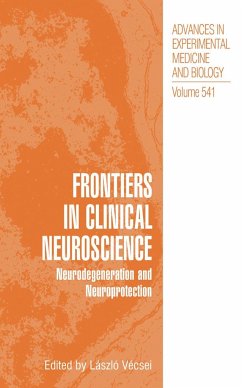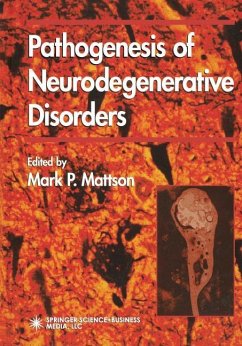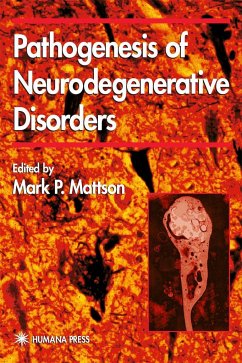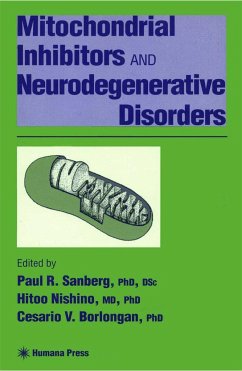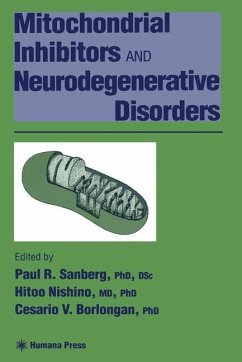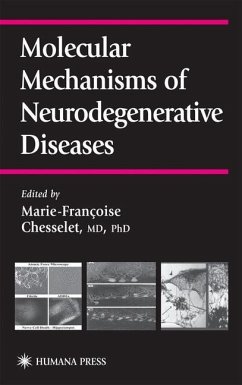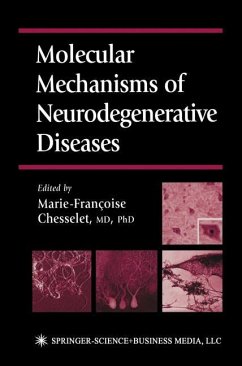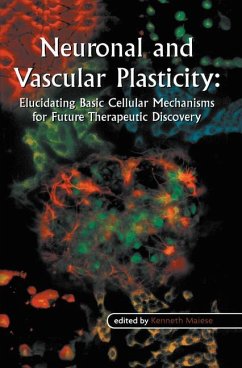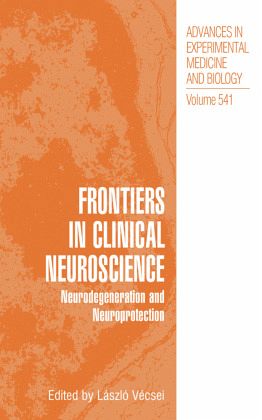
Frontiers in Clinical Neuroscience
Neurodegeneration and Neuroprotection A Symposium in Abel Lajtha's Honour
Herausgegeben von Vecsei, Laszlo

PAYBACK Punkte
38 °P sammeln!
Over the last decade, the considerable progress made in biochemistry, molecular biology, genetics and neuropharmacology has revealed some ofthe intimate mechanisms ofthe neurodegenerative disorders. There is increasing evidence linking genetic defects affecting mitochondria to Alzheimer's disease, Parkinson's disease, amyotrophic lateral sclerosis, Huntington's disease and some other neurological disorders. Advances in knowledge are fueled through improved animal models that use mitochondrial toxins, excitotoxins, and transgenic animals. Therapeutic studies in these models have strengthened th...
Over the last decade, the considerable progress made in biochemistry, molecular biology, genetics and neuropharmacology has revealed some ofthe intimate mechanisms ofthe neurodegenerative disorders. There is increasing evidence linking genetic defects affecting mitochondria to Alzheimer's disease, Parkinson's disease, amyotrophic lateral sclerosis, Huntington's disease and some other neurological disorders. Advances in knowledge are fueled through improved animal models that use mitochondrial toxins, excitotoxins, and transgenic animals. Therapeutic studies in these models have strengthened the possibility for effective treatments in man. By defining the pathomechanisms, we hope to be in the position to prevent cell death by protecting neurons. Indeed serious preclinical and clinical research is going on in the field of neuroprotection in stroke, Parkinson's disease, epilepsy, demyelinating disorders and dementia. Based on these scientific ideas, the Symposium in honour of Professor Abel Lajtha was organized by the European Society for ClinicalNeuropharmacology(ESCNP) and the Danube Symposium for Neurological Sciences in Budapest, Hungary, October 24-25, 2002. Professor Lajtha was born in Budapest in 1922 and his home town is an ideal venue for strengthening the bonds between Western and Eastern European Neuroscientists. Professor Peter Riederer (Wurzburg) held the 2002 special "Dezso Miskolczy Memorial Lecture" in Abel Lajtha's Honour. Thanks are due to the invited speakersofthis Symposium for their excellentcontribution. Laszlo Vecsei vii CONTENTS Advances in Neuroprotection Research for Neurodegenerative Diseases 1 Mario E. Gotz and Peter Riederer Neurotransmitter Release in Experimental Stroke Models: The Role of Glutamate-GABA Interaction 21 Laszlo G. Harsing, Jr.



